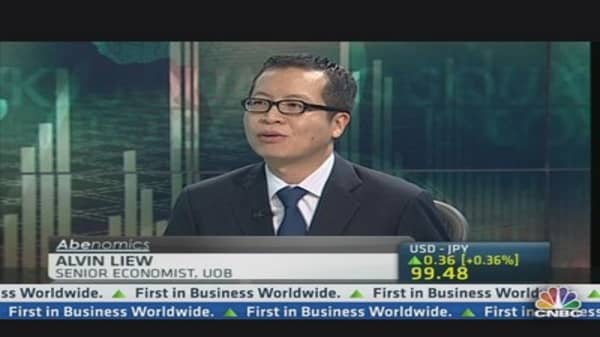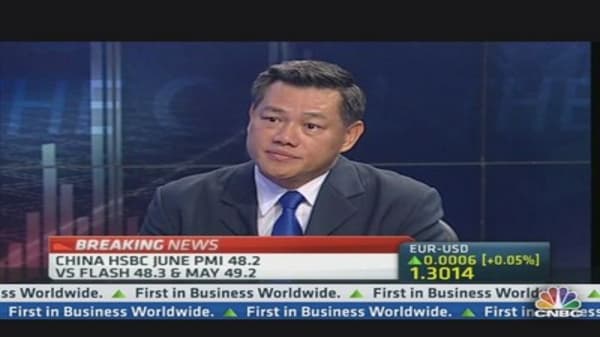The Australian dollar rebounded against the greenback, trading at $0.9179 from a near three-year low of $.09105 hit earlier in this session. That weighed on banking stocks with Australia's "Big 4" lenders falling over 2 percent each while Macquarie Group lost over 3 percent.
Shares of Boart Longyear skidded 7.4 percent after slashing its 2013 earnings forecast.
(Read More: The Great Rotation? That Still Hasn't Happened)
Uncertainty over the timing of Federal elections also weighed on sentiment after newly reinstated prime minister Kevin Rudd said he is considering delaying the vote until October, from the earlier September date.
Shanghai Rallies Nearly 1%
China's benchmark index managed to close at its highest levels in a week after bouncing between gains and losses throughout the session.
Mainland property shares reversed earlier losses to close higher after data showed that June housing prices grew at a slower pace in a hundred Chinese cities, compared to May. Lvjing Real Estate jumped nearly 2 percent while Poly Real Estate added 1 percent.
(Read More: Why China's Economy May Be Headed for a Crash)
In an effort to allay fears of a cash squeeze that sent money-market interest rates spiking over the last two weeks, Chinese Banking Regulatory Commission (CBRC) chief Shang Fulin said that the banking system had sufficient liquidity and pledged to control risks in the sector.
This helped banking stocks reverse earlier losses. Agricultural Bank of China and Minsheng Bank closed up 1.2 and 0.3 percent, respectively after skidding as much as 1 percent.
Kospi Down 0.4%
South Korean investors tracked Asia-wide caution on concerns over China's latest factory activity data and a paring down of U.S. stimulus.
A weaker yen weighed on exporters. Automakers Hyundai Motor and Kia Motors eased 1 percent each.
— By CNBC.com's Nyshka Chandran. Follow her on Twitter @NyshkaCNBC




